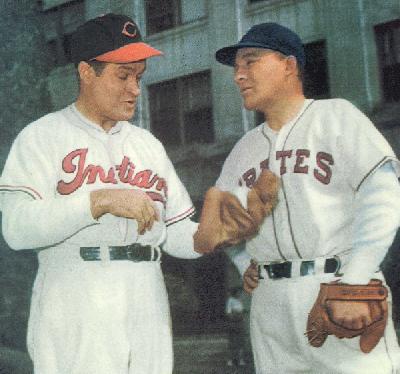
Bob Hope was scheduled for an Oct. 21, 1977, show to benefit Aultman Hospital. On Oct. 14, his pal Bing Crosby died.
The news wasn't good from Hollywood. Hope was a wreck. Nobody thought he'd come. Still, he offered to donate his time, and he was a man of his commitments.
They first attracted him in a sneaky way. They told him it was a golf tournament, and the town wanted to give him a custom-made driver club with his name engraved on the head.
Anything golf caught his attention. And, oh yes, could he do 25 minutes on stage?
PR brushoff
My news beat at that time was an odd one. I was the 3 a.m. police reporter combined with the entertainment writer. I was three years into my career, totally enamored by it and figured sleep was wasted time. On show day, we tried (begged) for an interview but no chance. Bob's PR lady insisted he was too crushed by Bing's death to face the inevitable questions.
I learned early that celebrity PR types often were prejudiced about small-town reporters, resulting in being over protective. They don't say it, but the obvious message is, "Gee, he's way too important for a little fish like you."
I knew he was staying at Brookside Country Club, so I decided to make a cold call anyway. There he was, walking into the clubhouse with his new driver, THE Leslie Townes Hope who fled England at age 4 "when I found out I could not be king."
His entertaining debut came in front of a Cleveland fire station in 1909, doing a Charlie Chaplin impersonation.
One thing about Bob Hope: There was only one. He was exactly the same on stage, on the radio, in movies, on TV and in front of our troops as he was with a driver in his hand fresh from the practice green.
"OK, five minutes," he said, steering me to a plush couch. Wow, that was easy.
Remembering Bing
Hope looked weary as he sank into the couch. He was having trouble sleeping since Bing died.
"We just junked our television special for next Friday. Bing was going to star, doing some affectionate knifing at my career," he said.
I was taken aback. I hadn't even planned an opening question, the most import one in an interview. It establishes trust between you and your subject.
I started with "I loved Bing Crosby," a really stupid thing to say, as if he cared what I thought.
He did care, and that opened the floodgate of his memories. I got the first interview with Bob Hope after Bing died.
He sighed as the grief welled up. Then: "Bing's voice - it sounds like a passionate cow being milked with suede gloves."
"When vaudeville died, TV was the box they put us in."
"We never felt old. I don't feel anything until noon. Then it's time for my nap."
That night I wrote my piece between the police news as another reporter covered the show at the Civic Center. It was a sell-out before 5,500.
My interview went as a sidebar to the show coverage, but it was the story picked up by AP's national wire. A few reporters called me, wanting to know how Hope was taking the death.
Next morning at the police station, there was a report of an elderly man in a tuxedo seen driving golf balls in the middle of Market Avenue outside Memorial Auditorium. The cops figured it was just another nut case in a crazy city.
"What if I told you it was Bob Hope," I said.
That's the way Bob coped. A few minutes earlier, he was singing "Thanks for the memories" in the auditorium. There wasn't a dry eye in the house, especially his.